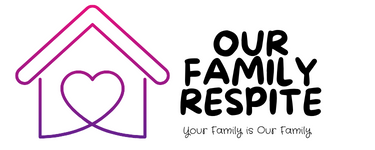Caring for a child with high needs is an extraordinary responsibility—one that requires constant attention, emotional energy, and physical endurance. Many caregivers feel exhausted, overwhelmed, and even guilty for struggling, but the reality is that the demands placed on them are immense. If you feel burnt out, it’s not a sign of weakness—it’s a reflection of how much you are doing.
The Reality of Caregiver Burnout
Parents of children with disabilities or complex medical needs devote an enormous amount of time to their child’s care. Studies show that parents of children with special needs spend an average of extra 21+ hours per week on caregiving tasks, including therapy appointments, medical care, and advocating for their child’s needs. This is equivalent to an additional part-time job, all while managing regular parenting duties, work, and daily life.
It’s no surprise that caregiver burnout is real and well-documented. Research highlights that:
- 48% of caregivers report feeling completely overwhelmed by stress most days.
- 90% experience sleep disruptions due to caregiving stress.
- 80% cry regularly from emotional exhaustion.
- 71% suffer from physical health problems due to the ongoing strain.
When you feel drained, frustrated, or mentally and physically exhausted, you are not alone—and your feelings are completely valid.
Why Caregiving Feels So Overwhelming
Caring for a high-needs child goes beyond the typical demands of parenting. Some of the additional pressures include:
- Emotional Load – The mental and emotional toll of constantly advocating for your child’s needs, navigating complex healthcare systems, and worrying about their future is exhausting.
- Physical Strain – Lifting, assisting, and providing hands-on care can cause chronic fatigue and physical stress.
- Financial Pressure – Many families struggle with the high costs of therapies, specialized equipment, and reduced work hours due to caregiving demands.
- Loss of Personal Time – Caregivers often sacrifice personal interests, social connections, and even self-care to prioritize their child’s needs.
These challenges make it completely normal to feel emotionally drained, frustrated, and even resentful at times. It doesn’t mean you love your child any less—it means you’re human.
You Are Doing More Than Enough
Many caregivers experience guilt, feeling like they should be doing more or that they should be handling everything better. But consider this:
- You are showing up every day, even when it’s hard.
- You are advocating for your child’s needs, making phone calls, scheduling appointments, and ensuring they get the best care possible.
- You are providing love and support in a way no one else can.
If you’re feeling exhausted, it’s not because you aren’t strong enough—it’s because what you’re doing is incredibly hard.
Recognizing the Need for Support
If you’re burnt out, seeking help is not failure—it’s essential. Asking for respite care, therapy, or support from family and friends isn’t about “not coping”; it’s about making sure you have the strength to keep going.
You deserve rest. You deserve support. And most importantly, you deserve to acknowledge that what you are doing every day is extraordinary.
If you’re looking for regular respite care for your loved one, please get in touch with us 🙂

